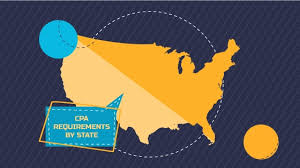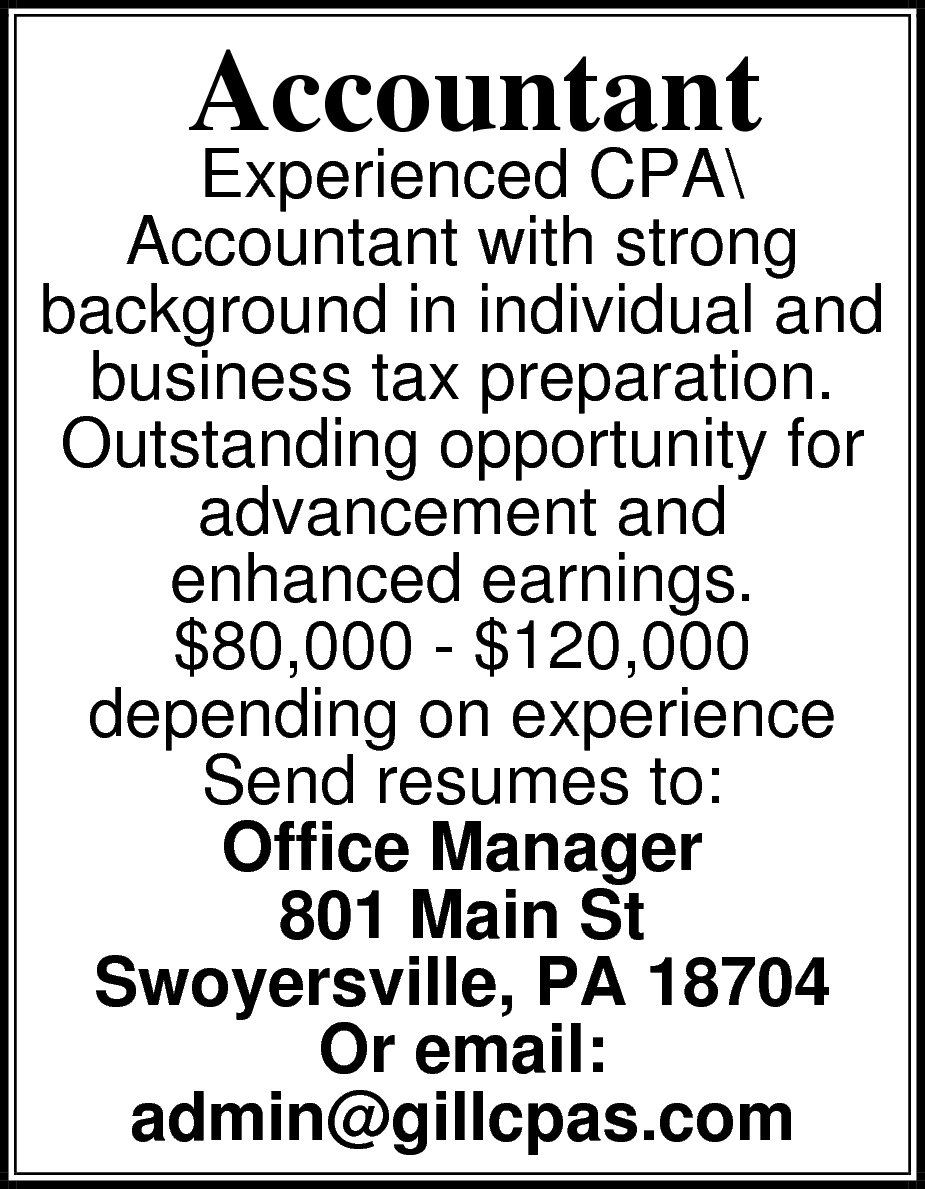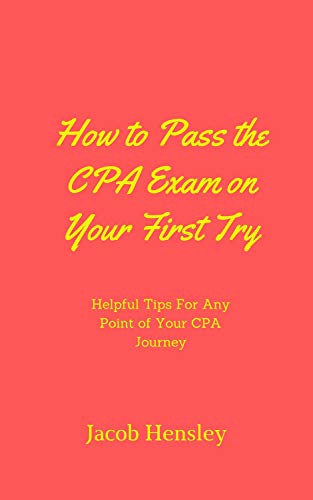
To be eligible for a CPA license, you must complete at least 150 semester hours of college credit. There are specific requirements for each state. The minimum amount of college credits required is 150. A certain amount of general education credits is required, as well as accounting. You should check with your state's Board of Accountancy to determine which courses and credits are needed. A bachelor's degree in finance or business is required.
36 semester hours in accounting
CPA candidates need to complete at most 150 semester hours college-level classes, including 36 semester hours of accounting. Students must also complete thirty semester hours in economics or business administration. They will also need to complete 60 hours of general and elective education. Two years of accounting experience is required, or about 104 weeks. Final, candidates for CPA must pass the AICPA ethical examination. Candidates must have a minimum of 90 percent in order to be considered for the CPA exam.

To qualify for CPA certification in New York, applicants must have 225 college credits, including at least 36 semester hours in accounting. These credits must also include coursework in related fields such as economics, business law, and written and oral communication. Community college coursework can also contribute to the requirements. Applicants with a baccalaureate degree can apply to transfer additional community college credits. These hours must also be transferable to four-year institutions. Internships are permitted, but must be limited to four semester hours or six quarter hours.
60 semester hours in general education
Prior to obtaining your CPA in New Jersey, you need to complete 150 semester hours. You can take up to 24 hours in any of the four main areas of accounting. You must also take at least 60 hours in general education. This may include any business course regardless of its content.
General education requirements require that you take at least 60 hours in courses in taxation, accounting, and ethics. Additional requirements include 20 hours of course work in compilation services or auditing. Independent study is not allowed. You can only earn 60 semester hours if you take approved courses. Credit can only be granted if your courses are relevant and not redundant. Your college coursework must also be at the upper-level.
Community college credits count as electives
It is not easy to obtain the required 150 semester hours of college courses in accounting without additional education. Luckily, many community colleges have excellent programs that prepare students for the next level of classes. You can choose to take one or more classes at a college and count them towards your electives. But make sure you choose a community college that is accredited by the state board. Without the proper credentials, courses taken will not count toward your CPA training.

CPA certification requires that you take courses in accounting at a community school. While you can choose any course you like, you need to select courses that are relevant to your career. You might want to study marketing or cybersecurity courses. However, you should be careful about choosing community colleges because some of them are not accredited. You need to ensure that your community colleges are accredited and offer courses that count toward your CPA education.
FAQ
What is the distinction between a CPA & Chartered Accountant, and how can you tell?
Chartered accountants are accountants who have passed all the necessary exams to get the designation. A chartered accountant is usually more experienced than a CPA.
Chartered accountants can also offer advice on tax matters.
The average time to complete a chartered accountancy program is 6-8 years.
What does an auditor do exactly?
An auditor looks for inconsistencies between the information given in the financial statements and the actual events.
He checks the accuracy of the figures provided by the company.
He also confirms the accuracy of the financial statements.
What should you expect when you hire an accountant?
Ask questions about experience, qualifications and references before hiring an accountant.
You need someone who is experienced in this type of work and can explain the steps.
Ask them about any skills or knowledge they may have that could be of assistance to you.
Make sure that they are well-respected in the local community.
How can I find out if my business needs an accountant
When a company reaches a certain size, accountants are often hired. One example is a company that has annual sales of $10 million or more.
However, not all companies need accountants. These include small firms, sole proprietorships, partnerships, and corporations.
It doesn't really matter how big a company is. It doesn't matter how big a company is.
If it does, then the company needs an accountant. Otherwise, it doesn't.
What kind of training does it take to be a bookkeeper
Basic math skills such as addition and subtraction, multiplication or division, fractions/percentages, simple algebra, and multiplication are essential for bookkeepers.
They need to also be able and confident in using a computer.
A majority of bookkeepers hold a high school diploma. Some even have college degrees.
What happens if I don't reconcile my bank statement?
You might not realize the error until the end, if you haven't reconciled your bank statement.
This will force you to go over the entire process all over again.
Statistics
- a little over 40% of accountants have earned a bachelor's degree. (yourfreecareertest.com)
- a little over 40% of accountants have earned a bachelor's degree. (yourfreecareertest.com)
- Employment of accountants and auditors is projected to grow four percent through 2029, according to the BLS—a rate of growth that is about average for all occupations nationwide.1 (rasmussen.edu)
- In fact, a TD Bank survey polled over 500 U.S. small business owners discovered that bookkeeping is their most hated, with the next most hated task falling a whopping 24% behind. (kpmgspark.com)
- Given that over 40% of people in this career field have earned a bachelor's degree, we're listing a bachelor's degree in accounting as step one so you can be competitive in the job market. (yourfreecareertest.com)
External Links
How To
Accounting: How to Do It Right
Accounting is a system of processes that allows businesses to accurately record transactions and keep track of them. Accounting involves recording income and expense, keeping track sales revenue and expenditures and preparing financial statements.
This includes reporting financial results to investors, shareholders, lenders, customers, and other stakeholders.
Accounting can take many forms. There are many ways to do accounting.
-
Creating spreadsheets manually.
-
Excel.
-
Notes on paper for handwriting
-
Utilizing computerized accounting software.
-
Online accounting services.
Accounting can be done in several ways. Each method has both advantages and disadvantages. Which one you choose will depend on your business model, needs and preferences. Before you choose any method, it is important to weigh the pros and cons.
Accounting can not only be more efficient, but there may also be other reasons to use it. If you're self-employed, for example, it might be a good idea to keep accurate books as they can provide proof of your work. Simple accounting is best for small businesses with little money. However, complex accounting may be more appropriate for businesses that generate large amounts of cash.